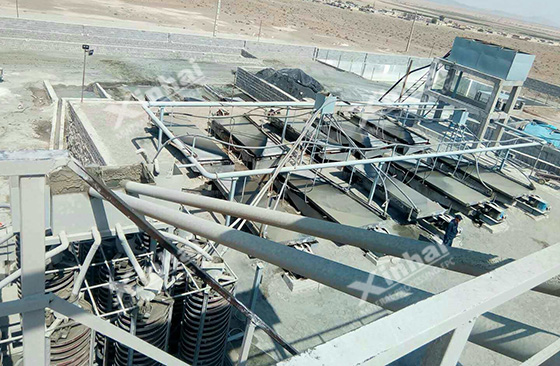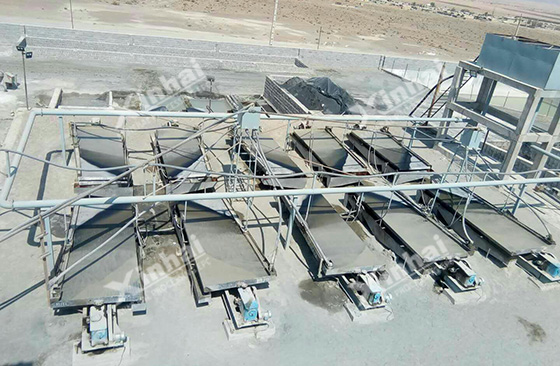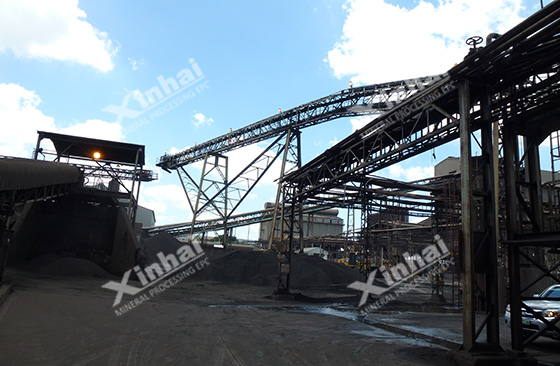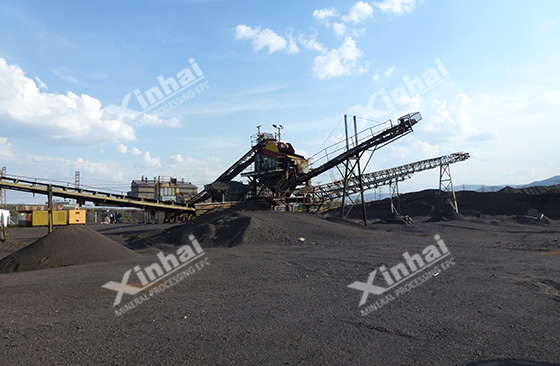
Chrome ore has both oxytropism and iron-philicity. At present, the chrome ores with industrial value are usually chromohercynite or chromium-iron spinellides, which contains about 18%~62%, and generally contains aluminum, nickel and other metals. The main role of chrome ore is used to make stainless steel. The common chrome industrial source is from chromite, which is widely distributed in a number of countries in the world, such as South Africa, India and Zimbabwe. Here are three kinds of the chrome mining process, and analyze how to choose the chrome mining process through the cases.
Since we have understood the nature of chrome ore, the chrome ore mainly includes chromite, chromium oxide. According to the different associated minerals, the chrome mining processes include the single gravity separation, the single magnetic separation, gravity separation-magnetic separation process. It is known that the chrome ore often contains more or less iron, and in order to better separate the iron from chrome, the gravity separation-magnetic separation process is commonly used as the chrome mining process. But the specific chrome mining process is still determined through the mineral processing test.

For the chrome mining equipment, the gravity separation equipment usually includes the jig, shaking table. The magnetic separation equipment includes the magnetic drum, permanent magnet separator, and the choice of magnetic separation equipment can only be selected after the determination of mineral magnetism.
The above are three kinds of chrome mining processes, so how do we choose it? We will analyze it through three chrome mining cases.
1. Philippines chrome processing plant
The ore contains chrome oxide, a small amount of pyrite and nickel pyrite, and the gangue minerals mainly include serpentine and a small amount of carbonate. The content of chrome oxide is 23.47%.
After receiving the ore sample, Xinhai firstly carried out the mineral processing test for the mine. The test results showed that the shaking table and spiral chute had a good discarding tailings effect, but the tailings yield of the spiral chute was low, so the shake table was used in the chrome mining process. After expanding the scale of the test for grinding variables, Xinhai finally decided to adopt a one-stage shaking table for rouging, middlings of shaking table for direct re-separation, roughing concentrate middlings, re-separated concentrate merge. Under this chrome mining process, the concentrate yield was 57.19%, the grade of chromium oxide was 37.46%, and the recovery rate was up to 88.78%.

2. Yunnan chrome processing plant
The raw ore of this plant was low-grade chromite with a complex composition. The content of chromium oxide was 8.51%, the content of chromite was 16.81%, and the content of the magnetite was 0.65%. The gangue minerals were serpentine and quartz.
Xinhai conducted the mineral processing test for the mineral, the steps of which were as follows:
• Firstly, Xinhai carried out the classifying and desliming test, and a cyclone with a diameter of 6mm was used for desliming, so that the raw ore was enriched effectively and the grade of chromium oxide reached 18.52%.
• Xinhai conducted the single shaking table test and single high-gradient magnetic separation test, and found that the shake table achieved the good enrichment, and the grade of chromic oxide was 40.56%, while the grade of chromic oxide reached 38.93% after the high-gradient magnetic separation.
• The grade of chromium oxide was 45.29% by magnetic separation and gravity separation combined process.
After the above test steps, we draw the conclusion that the chrome processing plant adopted classifying and desliming, magnetic separation and gravity separation combined process as the chrome mining process.

3. Zimbabwe Chrome processing plant
The content of chromium oxide was 35.28%, the content of ferrous oxide was 8.55%, and the main gangue minerals included peridot, serpentine, chlorite and so on. The raw ore was featured with relatively simple structure, coarse particles and higher dissociation degree.
By comparing the shake table gravity separation, shake table-strong magnetic separation and strong magnetic separation, a better index was obtained in the wet magnetic separation process. So, Xinhai decided on the wet strong magnetic separation-roughing-scavenging process. The grade of chromium oxide concentrate was 47.61%, and the recovery was 96.26%.

Through the introduction of the three above chrome processing plants, we can draw the following conclusions: for the rich ore with a high content of chromium oxide, we can adopt a single gravity separation or magnetic separation process; For the chrome ore with low content of chromium oxide, the combined magnetic separation-gravity separation process usually gets the better indexes than the single chrome mining process.
To find out more about our products and solutions, please fill out the form below and one of our experts will get back to you shortly.